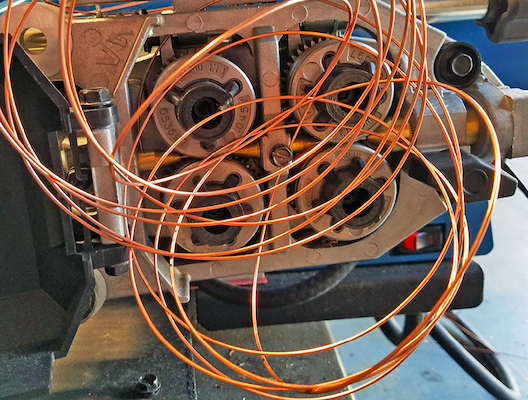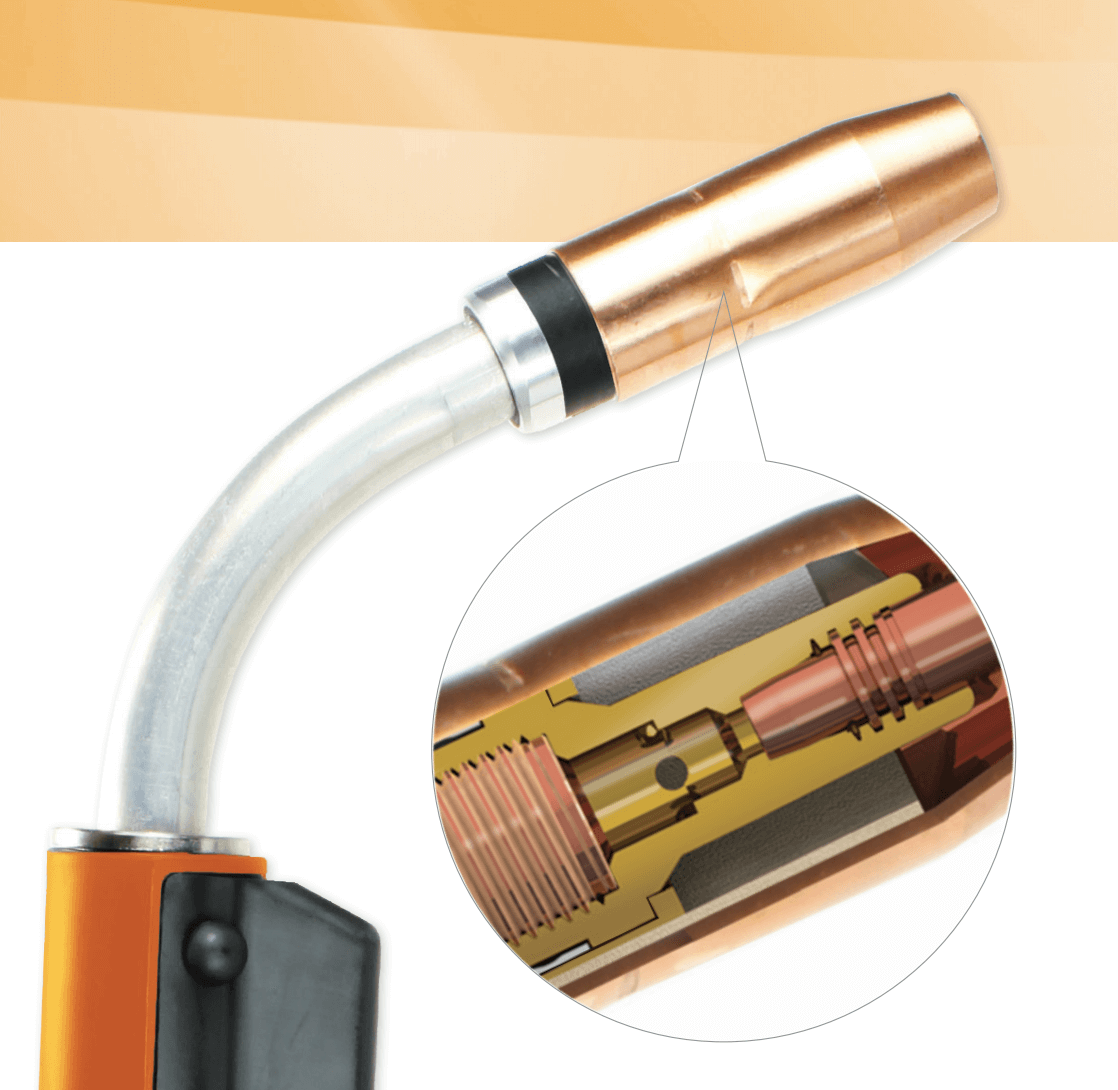Lincoln Flux Welder Not Feeding Wire
Trouble with your MIG wire not feeding properly can lead to various frustrating problems that lead to downtime, extra cost, and all the associated headaches that come with having to stop what you're doing and troubleshoot. And because wire-feed issues can happen anywhere along the length of the gun, you may need to check several areas until you find the problem.
Here's where to start.
Check Wire Quality
First, take a look at the wire itself. Moisture or disuse for long periods of time can cause rust, which in turn will clog up your liner.
If you do see rust, you can try and unspool until you find clean wire. You'll also need to either blow out or replace your liner (more on that later.) Any wire deformity can also cause issues in feeding.
Maintaining your wire in between jobs is as easy as taking it out of the welder and putting it under a blanket or in a garbage bag. Once you're in the habit, it will save you time and money in the long run.
Fine-Tune Spool & Drive Roller Tension
Your welding wire not feeding properly off the spool is likely due to incorrect tension on either the spool break, the drive rolls, or both. Too much tension can cause wear on the wire and too little can lead to birdnesting, so it's important to find the sweet spot on both parts.

It's not an exact science, but here are some pro tips to help you get close:
- Loosen the drive rolls, then increase the tension while feeding the wire into a block of wood or metal. Continue to increase the tension until you're one-half turn past wire slippage.
- If you notice you're having to tighten your drive rolls more than before, check for damage or wear.
- If all looks well, make sure the feed settings are still set properly and the wire is within spec.
- When parameters are correct, it may just be time to change your drive rolls.
RELATED: 5 Causes of Birdnesting
In addition, check that you're using the right type and size of drive rolls for your wire. If either is incorrect, it can lead to slippage.
The groove size should match the wire: V-grooved rolls for solid wire, U-grooved rolls for soft metals such as aluminum, and V-knurled rolls for flux-core.
Inspect Gun Liner
Because of its lengthy contact with the wire, a dirty, kinked, clogged, or otherwise damaged liner will almost always cause feeding problems. And while it might be inexpensive to replace a bad liner, it's also one of the more time-consuming consumables to change out.
If you suspect a clog, try blowing it out with low-pressure compressed air. Make sure you're using the right MIG liner size for your wire, and choose a high-quality liner that maintains a consistent diameter throughout.
As always, regular maintenance can extend the life of your liner, eliminate wire-feed problems and ward off the downtime that comes with replacing it. We recommend changing your liner once a year to avoid the build-up of debris and keep everything running smoothly.
Contact Tip
Finally, be sure that your contact tip ID matches the wire size and that its hole is still round. Over time it can wear and become oblong — this will also cause wire-feeding issues.

In addition, check that your stick-out isn't too long or too short. It can cause contact-tip burnback, which in turn leads to wire-feeding issues.
Contact-tip burnback causes and how to fix them:
- Faulty work lead/ground – check electrical connections and cables
- Tip recess and wire stick out – use a different nozzle and tip
- Improper set-up – get high-quality contact tips
You may also want to fine-tune your tip-to-weld distance for optimal performance.
RELATED: Preventing Premature Contact Tip Failure
Reduce Risk Of Wire-Feeding Issues with High-Quality MIG Parts
It's frustrating as a MIG welder when your gun won't feed wire. You are constantly having to stop to identify and fix the issue.
Reduce the chances of wire-feeding issues with high-quality parts such as our MIG Lightning Gun and consumables.
For even more tips and tricks, download our free MIG Troubleshooting Guide.
Source: https://americantorchtip.com/blog/mig-wire-not-feeding-heres-what-to-check/
0 Response to "Lincoln Flux Welder Not Feeding Wire"
Publicar un comentario